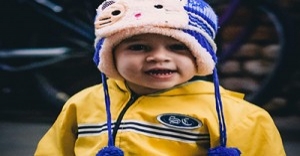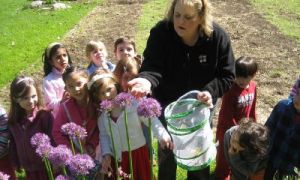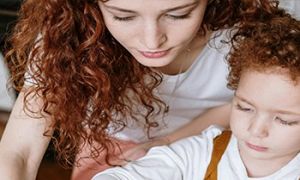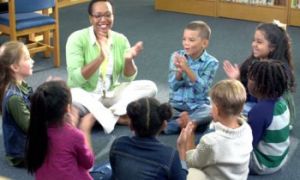

Pedagogy in early childhood isn’t just about teaching—it’s about how we nurture, guide, and co-construct learning with our youngest citizens. It’s the heartbeat of early education, where relationships, play, and emotional safety shape every moment.
This guide distills the heart of the Early Years Learning Framework into clear, actionable reference points for educators. Grounded in evidence and everyday practice, it highlights the guiding principles and intentional actions that support every child’s learning, well-being, and sense of belonging. Whether used in planning, reflection, or team training, these prompts and insights help ensure that pedagogy is not just compliant but deeply connected, culturally responsive, and emotionally attuned.
A “Look-For” guide is a practical tool used by educational leaders and mentors to identify and reflect on key indicators of quality practice during observations, walkthroughs, or self-assessments. Think of it as a lens—it helps you focus on what matters most in a learning environment.
Play-based learning is a core principle of the EYLF, emphasizing that children learn best through exploration, curiosity, and meaningful interactions. It allows children to develop problem-solving skills, creativity, and social-emotional intelligence in a natural and engaging way. The following article provides information on Key Aspects of Play-Based Learning in EYLF, How EYLF Links to Play-Based Learning, What Are Some Effective Strategies For Play-Based Learning and more.
Here’s a breakdown of developmental milestones for children aged 2 to 3 years, along with examples of how they link to the EYLF.
The Early Years Learning Framework (EYLF) is Australia’s national framework for early childhood education, designed to support children’s learning from birth to five years old. It is not a strict curriculum but rather a guiding framework that helps educators create meaningful learning experiences. The following article provides information on: EYLF Explained, Understanding The EYLF Principles, Understanding The EYLF Practices , What is The Purpose Of The EYLF, Strategies To Implement EYLF and more.
Achieving EYLF Outcome 5—Children Are Effective Communicators—in the Babies Room focuses on fostering foundational communication skills in the youngest learners. In an environment where babies largely communicate non-verbally, educators play a crucial role in creating opportunities for both expressive and receptive language development. Here’s how you can integrate practices that support this outcome in the Babies Room.
EYLF Outcome 4 centers on empowering children to become self-assured, engaged participants in their own learning. It’s all about nurturing a mindset where children perceive learning as an active, enjoyable, and continual journey. The following article provides information on the Definition Of Sub Outcomes, Practical Examples Of Sub Outcomes, Applying Sub Outcomes Into Practice and more.
Incorporating follow-ups into the EYLF program means creating an ongoing, responsive cycle that both monitors and builds on children’s learning. Here are some detailed strategies to help you weave follow-ups seamlessly into your EYLF planning cycle.
EYLF Outcome 3: Children Have a Strong Sense of Wellbeing focuses on fostering children's physical, emotional, and social wellbeing. It emphasizes resilience, self-regulation, and healthy lifestyle habits, which are essential for children's development and learning. The following article provides information on the Definition Of Sub Outcomes, Practical Examples Of Sub Outcomes, Applying Sub Outcomes Into Practice and more.
 As an Educator in Australia, your pay rate falls under the Children’s Services Award 2010. This award states the minimum amount that an employer can… Read More
As an Educator in Australia, your pay rate falls under the Children’s Services Award 2010. This award states the minimum amount that an employer can… Read More
 When working as a qualified Early Childhood Teacher (with a university degree) within a service, your rate of pay will come from the Educational Services… Read More
When working as a qualified Early Childhood Teacher (with a university degree) within a service, your rate of pay will come from the Educational Services… Read More
 When working as a Diploma Qualified Educator your pay rate is from the Children's Services Award 2010. This Award states your minimum rate of pay… Read More
When working as a Diploma Qualified Educator your pay rate is from the Children's Services Award 2010. This Award states your minimum rate of pay… Read More
 When working as a Cert 3 Qualified Educator, your pay rate is from the Children's Services Award 2010. This Award states your minimum rate of… Read More
When working as a Cert 3 Qualified Educator, your pay rate is from the Children's Services Award 2010. This Award states your minimum rate of… Read More
 Educational Leaders play a crucial role in their early childhood service by ensuring that the educational program aligns with best practices and supports the holistic… Read More
Educational Leaders play a crucial role in their early childhood service by ensuring that the educational program aligns with best practices and supports the holistic… Read More
 With the new national child safety reforms kicking in on 1 September 2025, early childhood services like yours have a real opportunity to lead the… Read More
With the new national child safety reforms kicking in on 1 September 2025, early childhood services like yours have a real opportunity to lead the… Read More
 In early childhood education and care, ratios are more than a technicality—they are a frontline safeguard. Every child deserves responsive supervision, emotional connection, and developmental… Read More
In early childhood education and care, ratios are more than a technicality—they are a frontline safeguard. Every child deserves responsive supervision, emotional connection, and developmental… Read More
 Here’s a comprehensive Mobile Phone and Smart Watch Policy tailored for early childhood education and care (ECEC) services in Australia, aligned with the latest 2025… Read More
Here’s a comprehensive Mobile Phone and Smart Watch Policy tailored for early childhood education and care (ECEC) services in Australia, aligned with the latest 2025… Read More
 The Sea of Fish Challenge is a national initiative that invites children, educators, families, and communities to create and display fish artworks as a symbol… Read More
The Sea of Fish Challenge is a national initiative that invites children, educators, families, and communities to create and display fish artworks as a symbol… Read More
 Cold weather play is incredibly beneficial for early childhood development! It helps children build resilience, strengthen their immune systems, and develop essential motor skills. Here’s… Read More
Cold weather play is incredibly beneficial for early childhood development! It helps children build resilience, strengthen their immune systems, and develop essential motor skills. Here’s… Read More

While working in an early childhood setting, one of the positions available is a room...
See more...
Educators are encouraged to shift away from asking "What are you making?" in early childhood...
See more...
Music in varied forms offers a plethora of benefits to children, whether they are listening...
See more...© 2009-2025 Aussie Childcare Network Pty Ltd. All Rights Reserved.
